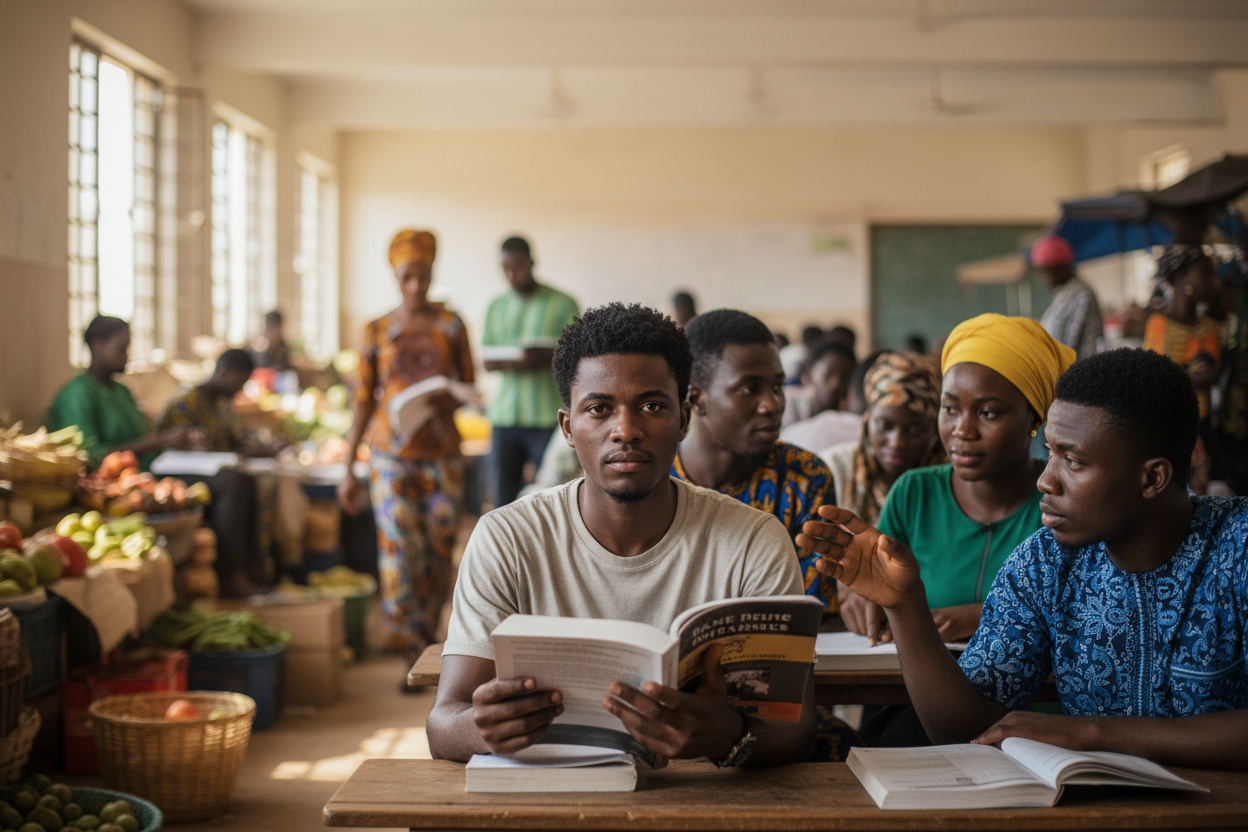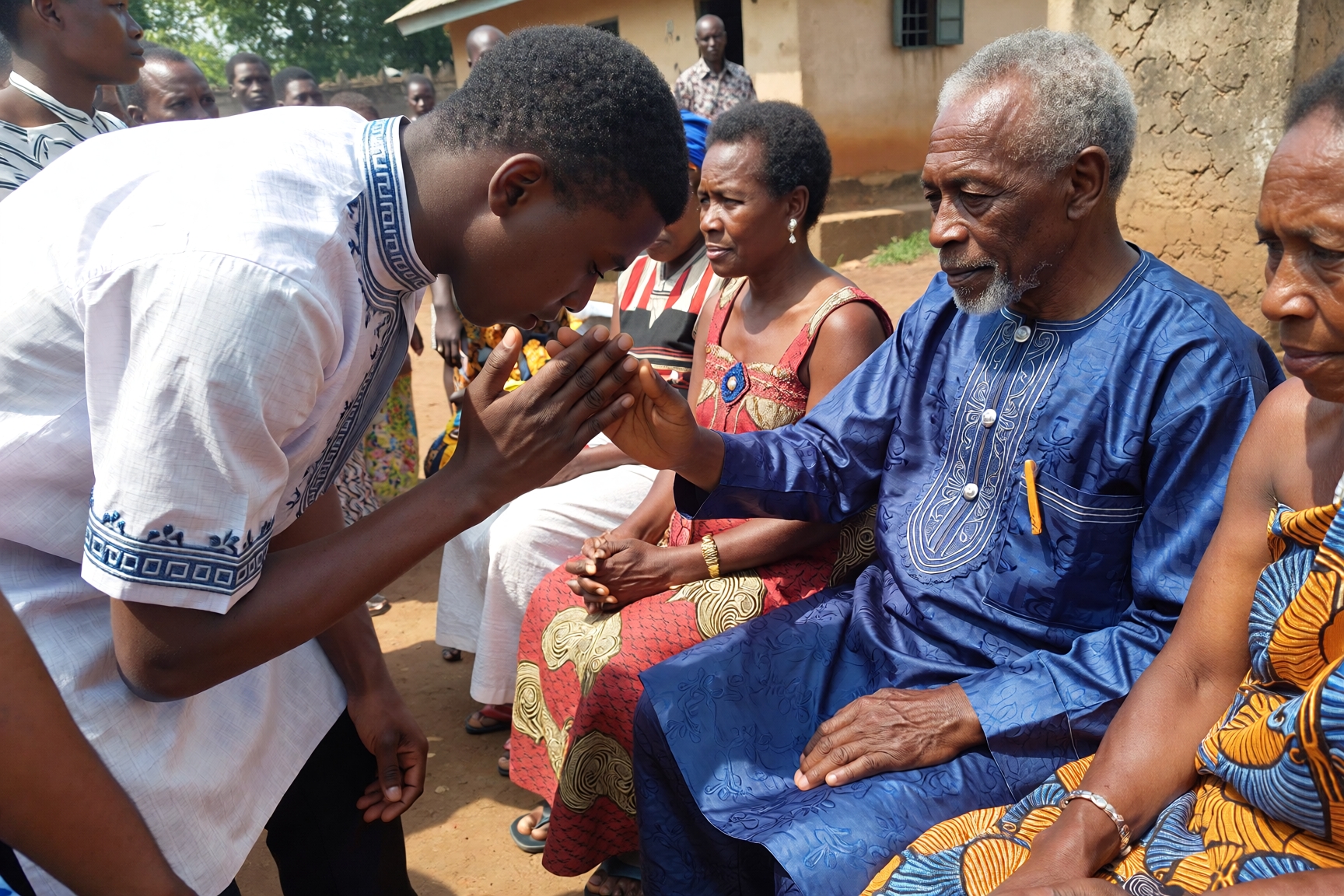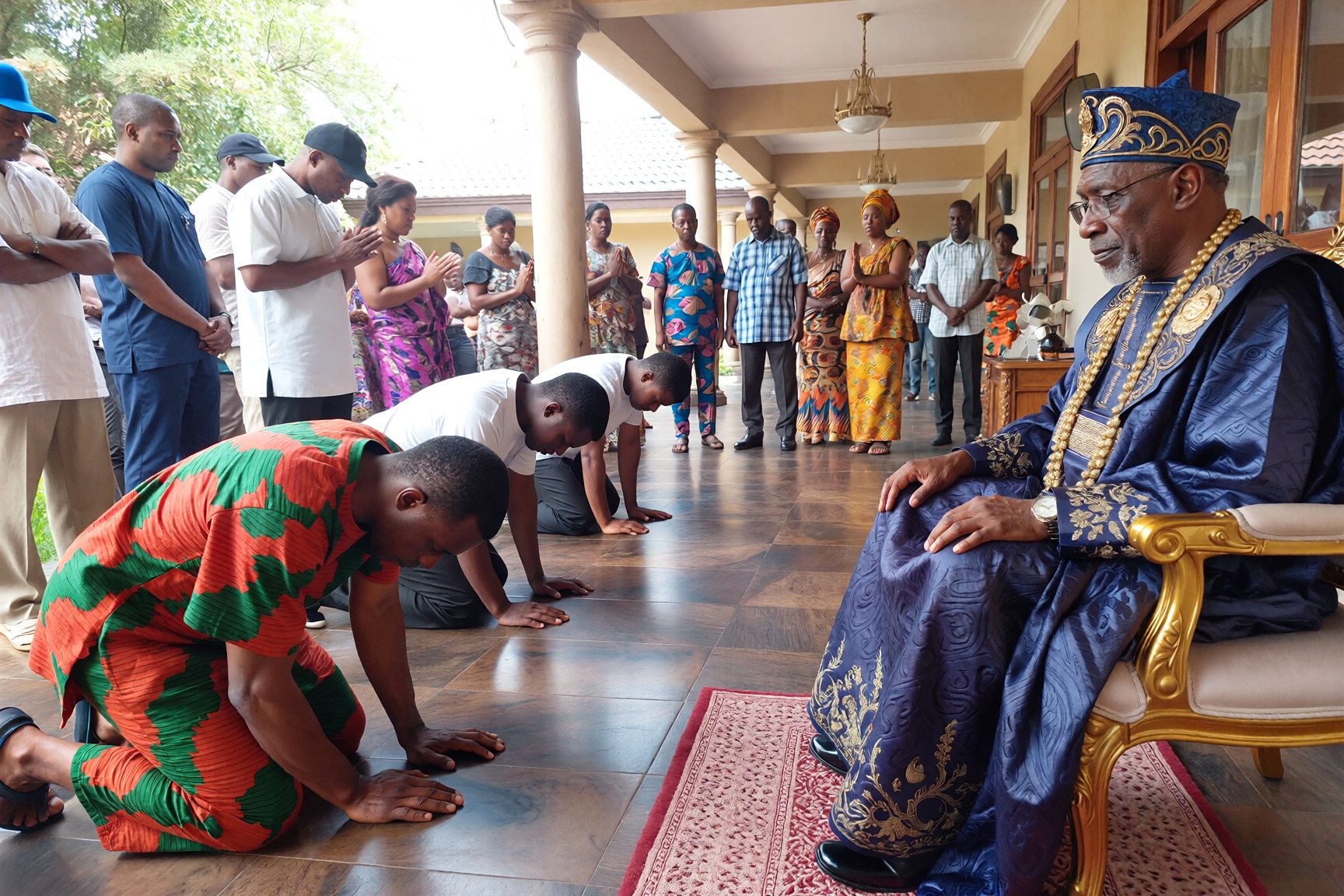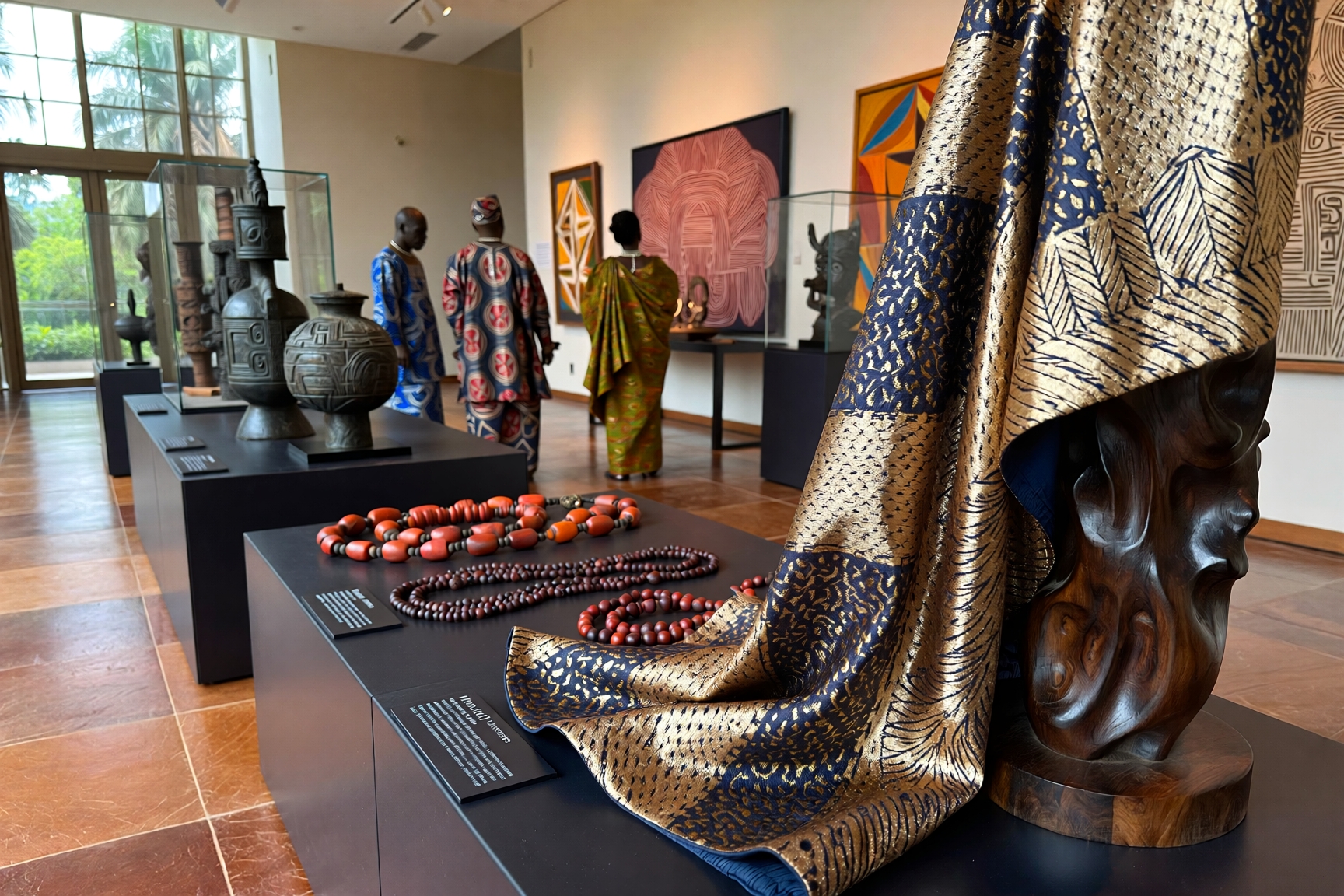I’m delighted you’ve found your way here, because this question about why Nigerians speak French has fascinated me throughout my years covering West African linguistics and cultural exchange. After months of research, interviewing language teachers, border community residents, and education officials across Nigeria, I’ve gathered insights that might surprise you about our relationship with la langue française.
The short answer? Most Nigerians don’t actually speak French as a primary language, but there’s a compelling story behind why French has become increasingly important in our national conversation.
Why French Matters to Nigerians Despite English Dominance
Here’s something I discovered during my research that many people find surprising: Nigeria is completely surrounded by French-speaking countries. Benin Republic to the west, Niger to the north, Chad to the northeast, and Cameroon to the east all use French as an official language.
This geographical reality creates what I like to call a “linguistic island” situation. Imagine living in a house where everyone around you speaks a different language. That’s essentially Nigeria’s position in West Africa.
The Nigerian government recognised this challenge decades ago. In 1996, the Federal Ministry of Education introduced French as a compulsory subject in primary and secondary schools. The reasoning was rather brilliant, actually: if we want to trade effectively with our neighbours and participate fully in regional organisations like ECOWAS, our citizens need French proficiency.
But does this policy mean Nigerians widely speak French today?
Not quite. Most Nigerians learn French in school but struggle to use it conversationally. I’ve met countless university graduates who can conjugate French verbs on paper but freeze up when a Beninois trader asks them a simple question at the border.
Understanding Why People Speak French Across Nigeria’s Borders
Let me share a personal story that illustrates this perfectly. Last year, I travelled to Seme Border in Lagos State for a feature article. I watched Nigerian traders negotiating with their Beninois counterparts, switching awkwardly between broken French, pidgin English, and hand gestures. One trader, Mrs Adebayo, told me she’d hired her daughter specifically because the young woman had studied French seriously.
“My daughter makes me an extra ₦50,000 monthly just by speaking French to our suppliers,” she explained. “I lose money every time I negotiate in English because the Beninois traders prefer French speakers.”
This anecdote reveals the practical reality of French in Nigeria. It’s not about cultural colonisation or losing our identity. It’s about economic necessity and regional integration.
The National Bureau of Statistics reported in recent years that cross-border trade contributes significantly to our GDP, with francophone countries representing major trading partners. When you consider that Nigeria conducts billions of Naira in trade annually with French-speaking neighbours, the language suddenly becomes less academic and more practical.
How French Proficiency Impacts Nigerian Border Communities
Border communities tell a different story entirely. In places like Illela (bordering Niger), Mubi (near Cameroon), and Badagry (close to Benin), you’ll find Nigerians who speak functional French out of daily necessity.
These communities didn’t wait for government policy. They learned French because their children attended schools across the border, their relatives married francophones, or their livelihoods depended on cross-border commerce.
I met a motorcycle taxi rider in Mubi who learned French by ferrying Cameroonian passengers daily. “Brother, French puts food on my table,” he told me in perfect Francophone-accented English. “The Cameroonians pay better, and they only ride with drivers who speak French.”

Why So Many African Countries Adopted French as an Official Language
To understand Nigeria’s relationship with French, we need to step back and look at the broader African picture. The reason so many Africans speak French isn’t mysterious at all (though it’s certainly complicated).
Colonial history explains most of it. France colonised vast territories across West and Central Africa, implementing a policy of “assimilation” that promoted French language and culture. Unlike British indirect rule, which often preserved local languages and structures, French colonial policy aimed to create “Black Frenchmen” who would adopt French as their primary language.
Countries like Senegal, Côte d’Ivoire, Mali, Burkina Faso, Benin, Niger, Chad, Cameroon, Gabon, and the Democratic Republic of Congo all emerged from colonialism with French as their official language. This created what’s now called “Francophone Africa,” comprising 21 countries where French serves as the language of government, education, and formal business.
Here’s the fascinating bit: these countries retained French after independence not just because of colonial inertia, but because French provided a neutral lingua franca among diverse ethnic groups. Rather like how English functions in Nigeria among our 500-plus languages, French became the unifying administrative language in these multilingual nations.
The challenge for Nigeria, as analysts have noted when examining regional cooperation challenges, is that this linguistic divide has sometimes complicated West African integration. French influence in the region has historically created tensions within ECOWAS, with some suggesting that francophone countries’ continued ties to France have undermined regional unity.
Regional French-Speaking Statistics That Affect Nigeria
Let me show you some numbers that really drive home why French matters to Nigeria:
| Country | Population (millions) | French Speakers | Border Length with Nigeria (km) |
|---|---|---|---|
| Benin Republic | 13.4 | 11.5 million | 773 |
| Niger | 26.2 | 13.1 million | 1,608 |
| Chad | 17.7 | 12.4 million | 85 |
| Cameroon | 28.6 | 21.5 million | 1,690 |
These figures reveal that Nigeria shares over 4,000 kilometres of borders with countries where approximately 58.5 million people speak French. That’s more than the entire population of South Africa!
When you’re surrounded by 58.5 million French speakers, the language stops being foreign and starts being necessary. This geographical reality influences everything from trade negotiations to security cooperation to cultural exchange.
The Top Three Languages Actually Spoken in Nigeria
Now, let’s address what languages Nigerians actually speak daily, because this context matters enormously for understanding French’s place in our linguistic landscape.
English holds the top spot as Nigeria’s official language. We use it in government, education, media, and formal business. Every Nigerian who attended school has some proficiency in English, though the quality varies widely. I’d estimate that roughly 60-80 million Nigerians can communicate effectively in English.
Nigerian Pidgin (or Naija) ranks second as our true lingua franca. This creole language blends English vocabulary with African grammatical structures and has become the language of popular culture, street commerce, and everyday interaction. Pidgin crosses ethnic boundaries brilliantly, and I’d wager more Nigerians speak Pidgin fluently than speak “proper” English. Perhaps 80-100 million Nigerians use Pidgin regularly.
Hausa claims third place as the most widely spoken indigenous Nigerian language. Dominant across the northern states and serving as a trade language throughout West Africa, Hausa boasts around 50-60 million speakers within Nigeria alone.
After these three come Yoruba (roughly 40-50 million speakers) and Igbo (approximately 30-40 million speakers), both concentrated in southern Nigeria but with diaspora communities nationwide.
French doesn’t crack this top list because it remains primarily an academic subject rather than a living language for most Nigerians. The Federal Ministry of Education’s curriculum includes French from primary school onwards, but classroom learning rarely translates to conversational fluency.
I remember struggling through French classes myself, memorising verb conjugations that evaporated from my memory the moment exams ended. This experience is nearly universal among Nigerian students. We study French for years but emerge unable to order food in a Cotonou restaurant.
Why this disconnect between policy and practice?
Several factors contribute. First, our teachers often lack native-level fluency themselves. Second, students view French as just another hurdle to clear for examinations rather than a practical skill. Third, we lack immersive environments where French becomes necessary for daily communication (except in border regions).
The educational challenges Nigeria faces extend beyond language instruction. When experts discuss improvements to Nigerian learning outcomes, they note that language of instruction itself presents barriers, with English (the medium of teaching) often being students’ second or third language.
Does Nigeria Have Any Historical French Influence?
This question deserves a straightforward answer: Nigeria’s colonial history is entirely British, not French. We gained independence from Britain in 1960, and our administrative systems, legal frameworks, and educational structures all bear British imprints.
France never colonised any part of what became Nigeria. Our linguistic “problem” (if we can call it that) isn’t historical French influence but rather geographical proximity to French-speaking neighbours.
However, there’s an interesting historical footnote worth mentioning. During Nigeria’s Civil War (1967-1970), France supported Biafra’s secessionist movement, primarily to counter British and Nigerian influence in West Africa’s oil-rich regions. This French intervention left lingering suspicions about French intentions in Nigeria, suspicions that occasionally surface in contemporary discussions about ECOWAS politics and regional alignment.
More recently, discussions about French neo-colonial influence in West Africa have intensified. Regional analysts examining ECOWAS dynamics have pointed out that France’s continued economic and military presence in francophone countries sometimes complicates regional integration efforts, creating what some see as competing spheres of influence within the sub-regional bloc.
Despite this complex history, France and Nigeria maintain diplomatic relations today. French companies operate in Nigeria, and some Nigerians study in France. But French cultural influence in Nigeria remains minimal compared to British and American influences.
Practical Steps for Nigerians Who Want to Learn French
Given our geographical situation, many Nigerians genuinely benefit from French proficiency. If you’re considering learning French (or improving your existing skills), here’s a practical roadmap based on my research and conversations with successful learners:
- Start with structured online courses that emphasise conversational French rather than just grammar. Platforms like Duolingo, Babbel, or Alliance Française courses provide solid foundations.
- Consume French media regularly by watching French-language films with English subtitles initially, then with French subtitles, then without subtitles. Nigerian satellite TV packages often include TV5Monde and other French channels.
- Practice with native speakers by visiting border towns like Seme, Badagry, or Mubi where you can interact with francophone traders and residents in low-pressure environments.
- Join language exchange groups in major Nigerian cities where francophones learning English meet Nigerians learning French for mutual practice sessions.
- Immerse yourself through travel by spending time in nearby francophone countries like Benin Republic or Togo, where affordability and proximity make extended stays feasible.
- Focus on practical vocabulary first rather than perfect grammar, learning phrases useful for business, travel, and everyday interactions before worrying about subjunctive moods.
- Set specific, measurable goals like “conduct a 10-minute business negotiation in French” rather than vague aims like “become fluent.”
The economic incentive for French proficiency shouldn’t be underestimated. I’ve documented numerous cases of Nigerian entrepreneurs who expanded their businesses into francophone markets after learning French, often doubling or tripling their revenue. One Lagos-based fashion designer told me her French skills opened doors to clients in Côte d’Ivoire and Senegal, transforming her boutique operation into a regional brand.
Why Do Nigerians Speak French? The Complete Answer
Right, let’s address the primary question head-on with complete clarity.
Nigerians don’t widely speak French as a native or primary language. However, French learning has become increasingly important in Nigeria because the country is entirely surrounded by French-speaking nations, creating practical economic and diplomatic reasons for language acquisition. The Nigerian government made French compulsory in schools specifically to facilitate regional trade, improve ECOWAS cooperation, and enable citizens to engage with the 58.5 million French speakers living across our borders.
The situation is rather paradoxical. On paper, every Nigerian student studies French for years. In reality, perhaps only 5-10% of Nigerians can hold a basic conversation in French, with even fewer achieving genuine fluency.
Border communities represent the exception. In these areas, French functions as a practical necessity rather than an academic subject. Children grow up bilingual, adults conduct business in both languages, and French proficiency directly correlates with economic opportunity.
Urban professionals increasingly recognise French as a career advantage. Banking executives, diplomats, and business owners dealing with West African markets prioritise French training for themselves and their children. Some elite Nigerian schools now offer French immersion programmes, acknowledging that our economic future involves deeper francophone engagement.
The future trajectory seems clear: French will become more important in Nigeria, not less. As ECOWAS integration deepens (despite current challenges), as Nigerian businesses expand regionally, and as our diplomatic engagement with francophone Africa intensifies, French proficiency will transition from “nice to have” to “essential.”
Some forward-thinking Nigerians have already recognised this reality. Just as understanding our complex history and cultural transformations requires deep contextual knowledge, so too does navigating West Africa’s linguistic landscape demand practical language skills. The same kind of transformative thinking that once challenged harmful traditional practices while respecting cultural dignity can help us approach linguistic adaptation without losing our essential Nigerian character.
Conclusion: Embracing Our Multilingual West African Future
Why do Nigerians speak French? The question itself contains a fascinating misconception. Most Nigerians don’t speak French fluently, but we’re increasingly learning it out of practical necessity rather than colonial legacy or cultural preference.
Our geographical position as an English-speaking island in a Francophone sea creates unique challenges and opportunities. The challenges include communication barriers that complicate trade, diplomatic misunderstandings that hinder regional cooperation, and missed economic opportunities when our citizens can’t engage francophone markets.
Yet the opportunities are equally compelling. Nigerian entrepreneurs who master French access markets containing hundreds of millions of potential customers. Our diplomats who speak French strengthen Nigeria’s regional leadership position. Our border communities that embrace bilingualism prosper from facilitating commerce between linguistic zones.
The story of French in Nigeria ultimately reflects broader themes about language, power, and pragmatism in post-colonial Africa. We didn’t inherit French from colonisers (thank goodness), but we’re choosing to adopt it for our own strategic purposes. This represents agency, not subjugation.
Looking forward, I predict three developments. First, French instruction in Nigerian schools will improve as policymakers recognise current methods aren’t working. Second, more Nigerians will pursue French proficiency independently, driven by economic incentives. Third, a new generation of bilingual Nigerians will emerge from border regions, naturally bridging our linguistic divide with francophone neighbours.
The question isn’t whether Nigerians will speak French, but how quickly we’ll embrace it as the practical necessity it’s becoming. Those who move first will reap the greatest rewards.
Key Takeaways About French and Nigeria
- Nigeria is surrounded by French-speaking countries (Benin, Niger, Chad, Cameroon) with 58.5 million French speakers across over 4,000 km of shared borders, creating practical economic reasons for French proficiency despite Nigeria’s British colonial heritage and English official language status.
- While French is compulsory in Nigerian schools, most citizens cannot hold basic conversations in French, with genuine fluency concentrated in border communities where French functions as a daily economic necessity rather than an academic subject.
- French proficiency increasingly represents a career and business advantage for Nigerians seeking to engage regional markets, with successful entrepreneurs reporting doubled revenues after expanding into francophone West African countries.
Connecting Nigeria’s Linguistic and Economic Landscape
Understanding Nigeria’s relationship with French connects to broader questions about Nigerian identity and economic structures. For instance, just as wealth and influence shape opportunities in our society, language proficiency increasingly determines who can access regional markets and opportunities. Nigeria’s wealthiest families and their business empires provide fascinating context about who leads our regional economic engagement, with many top entrepreneurs recognising French skills as essential for West African market expansion.
Similarly, our cultural evolution as a nation has always involved complex negotiations between tradition and change, internal values and external influences. The story of how transformative figures challenged harmful practices while respecting cultural dignity offers lessons for how we might approach linguistic and cultural adaptation today without losing our essential Nigerian character.
FAQ: Why Do Nigerians Speak French?
Do most Nigerians speak French fluently?
No, most Nigerians do not speak French fluently despite years of school instruction. Perhaps only 5-10% of Nigerians can hold basic conversations in French, with genuine fluency concentrated in border communities and among business professionals who regularly engage francophone markets.
Why is French taught in Nigerian schools if Nigerians don’t speak it?
French became compulsory in Nigerian schools in 1996 because Nigeria is surrounded by French-speaking countries and needs language skills for regional trade and ECOWAS cooperation. However, classroom instruction has largely failed to produce conversational fluency due to poor teaching methods and lack of immersive practice opportunities.
Which Nigerian cities have the most French speakers?
Border towns like Seme (Lagos State), Badagry (Lagos State), Illela (Sokoto State), and Mubi (Adamawa State) have the highest concentrations of French speakers due to daily cross-border trade and interaction. These communities developed French proficiency out of economic necessity rather than formal education.
Can you do business in Nigeria without speaking French?
Yes, you can conduct all domestic Nigerian business entirely in English or Nigerian Pidgin without any French knowledge. French only becomes necessary or advantageous when dealing with our francophone neighbours in Benin, Niger, Chad, or Cameroon, or when expanding businesses into broader West African francophone markets.
Is French more useful than other Nigerian languages?
That depends entirely on your location and business activities. For border communities and regional traders, French is extremely useful and economically valuable. For most Nigerians operating domestically, indigenous languages like Hausa, Yoruba, or Igbo are far more practically useful than French.
How many countries in West Africa speak French?
Eight ECOWAS member countries use French as an official language: Benin, Burkina Faso, Côte d’Ivoire, Guinea, Mali, Niger, Senegal, and Togo. Additionally, two Portuguese-speaking countries (Guinea-Bissau and Cape Verde) exist alongside five English-speaking nations (Nigeria, Ghana, Gambia, Sierra Leone, and Liberia).
Why didn’t Nigeria become a French colony like its neighbours?
Nigeria was colonised by Britain, not France, which is why English rather than French became our official language. The colonial partition of Africa assigned different territories to different European powers, with Britain controlling Nigeria while France controlled most surrounding territories in West Africa.
Does knowing French help Nigerians get jobs?
Yes, French proficiency increasingly provides career advantages in banking, diplomacy, international business, and companies operating across West Africa. Many Nigerian employers now prefer candidates with French skills, particularly for positions involving regional engagement or francophone market expansion.
Are there French-speaking communities within Nigeria?
No, there are no native French-speaking communities within Nigeria’s borders. However, border regions have high concentrations of Nigerians who learned French through daily cross-border interaction, and some urban areas have small expatriate French-speaking populations.
How long does it take a Nigerian to learn French?
With dedicated effort including formal instruction and immersive practice, most Nigerians can achieve conversational French proficiency in 12-18 months. However, school-based learning without immersion typically produces minimal practical fluency even after years of study.
Will French become more important in Nigeria’s future?
Yes, French proficiency will likely become increasingly important as ECOWAS cooperation deepens and Nigerian businesses expand regionally. Economic integration with francophone neighbours makes French skills more valuable for career advancement and entrepreneurship.
What’s the relationship between English and French in West Africa?
English and French coexist as competing colonial linguistic legacies in West Africa, with five ECOWAS countries speaking English and eight speaking French. This division sometimes complicates regional integration, though organisations like ECOWAS work to bridge the linguistic gap through translation services and bilingual programmes.






